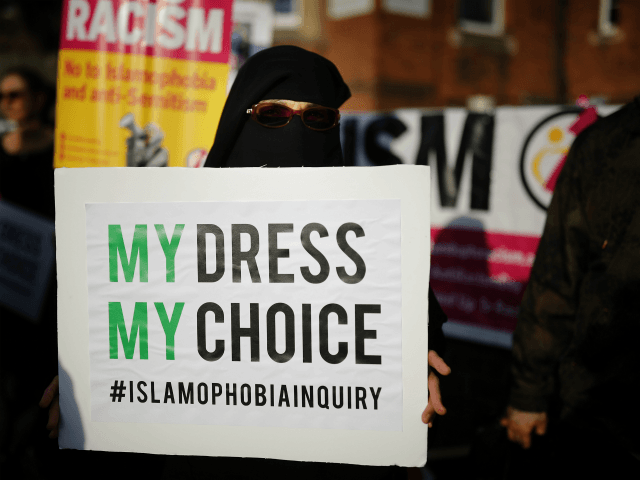Assistant Commissioner Neil Basu has said that someone making comments critical of the burqa like those previously made by UK Prime Minister Boris Johnson couldn’t become a police officer.
Scotland Yard’s top terror officer, widely tipped to be the next head of the Metropolitan police, was asked in an interview with The Guardian to respond to comments made by Mr Johnson in August 2018, where he criticised the Islamic modesty garment as “oppressive”, writing that he thought it was “absolutely ridiculous that people should choose to go around looking like letter boxes”.
When the left-liberal newspaper asked whether someone referring to burqa-wearers as “letterboxes” or other such controversial comments would be allowed to join the police force, Basu responded: “No, they wouldn’t be recruited into policing.”
Adding that while he was “not going to comment on individual comments by individual public servants”, he said London’s Metropolitan Police Service “prided ourselves for a very long time… of being an organisation that wants to be anti-racist, inclusive, wants to be diverse.
“What we must not do at any point, now or in the future, is lower our standards in terms of integrity and professionalism, diversity, inclusion.”
The Met has been under criticism for its ‘modern’ policing, after London’s mayor Sadiq Khan set up an “online hate crime hub” , while dropping investigations into lower level crime.
Neil Basu, who made the comments in an interview where he also said that a no-deal Brexit would harm security, made similarly controversial remarks in a separate interview with The Guardian on Wednesday, where he said that Muslims should not be made to feel that they have to “assimilate” into British society, and for suggesting that social problems are to blame for some people being vulnerable to terror recruitment.
The assistant commissioner had alarmed members of the media last month when he said that published leaked diplomatic memos — in the wake of the Sir Kim Darroch affair — could constitute a criminal offence, raising concerns over freedom of the press.
Mr Johnson’s remarks about the burqa came in an opinion piece he had written last year in The Telegraph, where he criticised Denmark for making the wearing of the garment illegal. Denmark is one of a number of European and Muslim-majority countries to impose full or partial restrictions on religious face coverings, with the Netherlands joining that list this month.
At the time, the now-prime minister’s comments had been reported to the police for “spreading a hate crime”, with the Conservative Party considering disciplinary action and sending Mr Johnson to diversity training. Commissioner Cressida Dick said that month she had checked with specialist police officers and his comments did not constitute a hate crime.
Johnson, from the liberal tradition of the Tory Party who has called on numerous occasions for mass amnesty of illegal aliens in the UK and called for Turkey to join the EU, was cleared of breaking party rules four months later.
While the establishment had attacked the politician, a poll revealed that the majority of the public did not think that Mr Johnson should be punished for the joke, with 60 per cent fearing that free speech was under threat in the United Kingdom.
A poll last year found that 71 per cent of Britons back a burqa ban and while countries including Cameroon, Morocco, and Sri Lanka impose varying bans on the production or wearing of the garment associated with Islamic fundamentalism, no such restrictions exist in the UK.

COMMENTS
Please let us know if you're having issues with commenting.